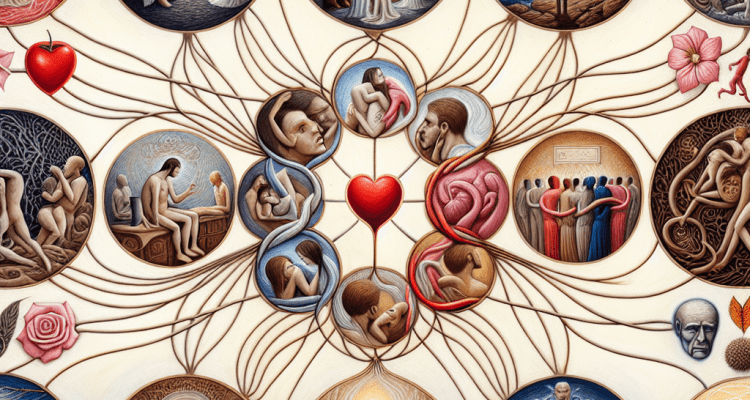The Psychology of Love: Understanding Different Types of Romantic Attachment
Love, an emotion that has inspired poets and playwrights for centuries, is often seen as a mysterious force that binds people together. But did you know that psychologists have been trying to map out this enchanting maze? In today’s journey through the heart and the mind, let’s dive deep into the understanding of romantic attachments. Grab a cup of tea, your favorite cozy blanket, and prepare to explore the psychology of love with a sprinkle of humor!
What is Romantic Attachment?
Romantic attachment is a type of bond that forms between partners in an intimate relationship. Think of it like Velcro: some people stick effortlessly, while others seem to repel like the same ends of a magnet. But why do some people bond in particular ways, and what influences our romantic attachment styles?
The Four Main Types of Attachment
The theory of attachment was originally developed by psychologist John Bowlby and later expanded by Mary Ainsworth. Their pioneering work has identified four main types of attachment in adult relationships:
- Secure Attachment: Just like your phone connecting instantly to your home Wi-Fi, securely attached individuals find comfort and security in relationships. They can depend on their partners and enjoy emotional intimacy without fear of abandonment.
- Anxious Attachment: If you’ve ever felt like calling your partner ten times just to check they’re not planning to leave you, you may relate to an anxious attachment style. Those with this attachment are often preoccupied with fears of rejection and employ strategies to gain reassurance from their partners.
- Avoidant Attachment: Folks with this style might treat emotions like airport security: best avoided! They tend to value independence over intimacy, often leading them to distance themselves emotionally.
- Disorganized Attachment: This type can be a wild card. It’s the unpredictable sibling you never understand at family gatherings. Individuals with disorganized attachment often experience a mix of anxious and avoidant behaviors, leading to erratic relationship dynamics.
Factors Influencing Attachment Styles
Why do we end up attached in these intriguing ways? Several factors contribute, including:
- Childhood Experiences: Our primary caregivers are the first relationship tutors we encounter. The way they interact with us largely shapes our initial attachment style.
- Life Events: Significant life events, such as trauma or loss, can influence a shift in attachment style over time.
- Personal Experiences in Relationships: The quality and dynamics of past romantic relationships also play a crucial role in how we attach emotionally in future relationships.
Could Different Attachment Styles Benefit Our Relationships?
If you’ve ever played in a band, you know how important it is to have a diverse group of musicians with different talents and skills. Similarly, various attachment styles can complement one another, leading to a more harmonious relationship. Understanding each style’s strengths and weaknesses helps partners communicate and adapt, fostering a strong emotional bond.
In this diverse romantic cyberspace, however, sometimes people are drawn to distractions that might hinder their emotional connections. Just as some find intrigue in the Popular Explicit Telegram Channels, several find thrill in exploring new avenues to stay engaged. It’s crucial, though, to keep balance and awareness of how these engagements influence romantic attachment.
Improving Your Attachment Style
“Can I change my attachment style?” you might be wondering. Fortunately, the answer is yes! Here are some tips:
- Engage in self-reflection and understand your attachment behavior.
- Practice open and honest communication with your partner.
- Seek professional help if needed – therapy can provide valuable insights and coping strategies.
- Build a supportive network of family and friends to help foster secure attachments.
Final Thoughts: Embrace the Complexity of Love
Love is a rich and complex emotion that grows, shifts, and transforms over time. Understanding your attachment style is a step towards embracing this complexity, helping you form deeper, more fulfilling connections. So the next time you find yourself questioning your romantic behaviors as you watch a rom-com, remember that there might be a psychological explanation intricately woven into your style of love. And never forget, just like love, a good sense of humor is essential in navigating this whirlwind journey!
